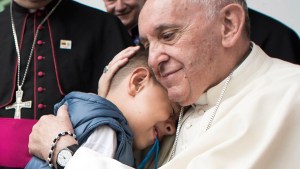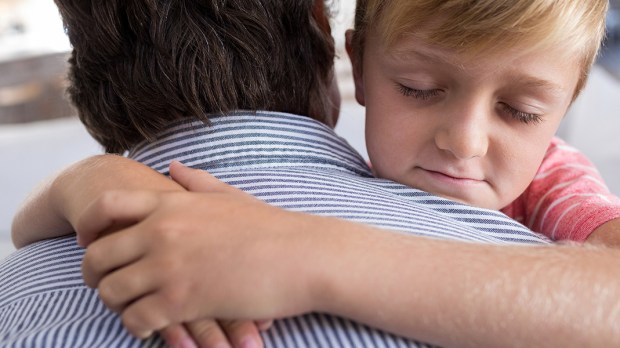God has spent years — millennia — carefully preparing to adopt you this Christmas.
St. Paul summed up the Christmas mystery in his words to the Galatians: “When the fullness of time had come, God sent his Son, born of a woman … so that we might receive adoption as sons.” Church teaching is filled with that idea, calling our adoption by God the purpose of our lives and the meaning of Christmas.
If you look up “best practices” for preparing a child for adoption, it’s amazing to see just how practical and specific God’s efforts have been to prepare for our adoption. Here are six examples.
First, experts say, “Spend time with the child where she is before her adoption, if possible. At least Zoom or Skype.”
Visiting the child where she lives allows her to get used to you and understand you on her terms before the shock of changed circumstances.
God did this throughout Salvation history, as he reminds us in Advent, coming to us before calling us to himself. He has also “Skyped” with us by sending his representatives, from the prophets and saints to the people who brought us the faith, to spend time with us in our world.
Second, “If your child is being adopted from another country, learn key phrases in the child’s language.”
A child you are adopting will eventually have to learn your language, but in the meanwhile you have to gain his trust and understanding. You need to be able to say: “Are you hungry?” “I will take care of you.” “Stop, please.” “Watch me.” “Show me.” And “I love you.”
God is adopting us from a foreign country — the exile we have made of the world because of sin — and he has learned to speak to us in the only ways we will understand. First, he speaks in the desires of our heart, saying “Are you hungry?” Then he speaks through salvation history, saying, “I will take care of you.” His Commandments say, “Stop, please.” His Son’s life says, “Watch me.” And by commanding love of neighbor, he says, “Show me.”
Above all, with the manger and the cross he says, “I love you.”
Third, “Make arrangements to teach your child your language.”
It’s important to be prepared with a tutor, online solution, or a class if you are adopting a child from another country. It will take concentrated time and effort for the child to learn your language, and a lifetime to perfect it.
God teaches us his language through Scripture, the teachings of the Church, and the liturgy. The Psalms help us see his place in our lives. The parables of Jesus show us how the spiritual life works on earth. The Church spells out what needs to be spelled out, and demonstrates how to pray. It takes personal effort to learn and a lifetime to perfect.
Fourth, “Ask the child for drawings, and put them on the refrigerator for all to see.”
I love this one. It prepares the child to see the pride you take in her, and feel accepted and appreciated.
God does this by giving us a role to play with our poor talents in salvation history. He has given us each a unique set of gifts and wants us to use them. An adopted child is probably a less talented artist than Van Gogh, but we honor the child by displaying their work nonetheless. We are probably less talented than St. Paul, but God wants to display our faith efforts, too.
Fifth, “Send care packages to the child: Pictures of the home they will be joining, a photo book, perhaps a stuffed animal, and drawings from siblings.”
The child needs to start familiarizing himself with new surroundings, and these packages help him do it.
In the same way, God sends us gifts we get through the Church to familiarize us with his world — holy cards, the sacramentals, medals, and the lives of the saints — that introduce us to our heavenly homeland.
Last, “If possible and desirable, have an entrustment ceremony where you transfer the child to their new home.”
These transfer rituals can be a powerful way for the child to make a clean but respectful break from their old life and embrace their new circumstances.
This is what God does in baptism and the other sacraments, as well as in the major feasts of the Church: gives us a space where we can leave our attachment to the world behind and embrace a new life in him.

Read more:
The word Abba is like a recording of Jesus’ voice, says pope

